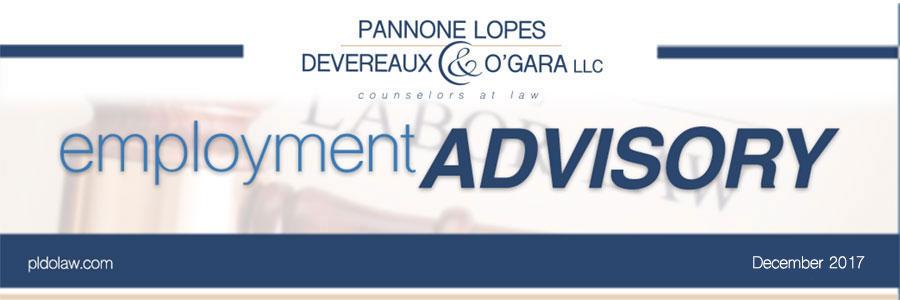 |
INTERN OR EMPLOYEE?
A very recent federal case highlights the rules of the road when employers utilize interns. Wang v. Hearst Corp., No. 16-3302, (2d Cir. Dec. 8, 2017). The case was brought by a group of unpaid interns that participated in a for-credit internship program that Hearst operated at its various magazine offices. The interns alleged that they should have been paid minimum wage for the hours worked, pointing to the “menial and repetitive” nature of their tasks, Hearst’s failure to provide close supervision or guidance, and the absence of much formal training.
However, the Court of Appeals rejected the claim that the interns should have been paid for time spent at the employer’s various work sites. In doing so, the court weighed the following seven considerations:
- The extent to which the intern and the employer understood there was no expectation of compensation;
- The extent to which the internship provided training that would be similar to that which would be given in an educational environment;
- The extent to which the internship is tied to the intern’s formal education program;
- The extent to which the internship accommodates the intern’s academic commitments by corresponding to the academic calendar;
- The extent to which the duration is limited to the period in which the internship provides the intern with beneficial learning;
- The extent to which the intern’s work complements, rather than displaces, the work of paid employees while providing significant educational benefits to the intern; and
- The extent to which the intern and the employer understand that the internship is conducted without entitlement to a paid job at the conclusion of the internship.
Applying these factors, the Second Circuit ruled that on balance the interns were not entitled to compensation. Each one of the internships was tied to an educational program that benefitted the students. While the employer clearly reaped a benefit, that did not alter the fact that the internships were arranged to accommodate the interns’ academic calendars and that applicants were required to obtain prior approval for college credit to participate.
Beyond the academic integration offered by Hearst’s internship program, the Second Circuit also emphasized that the training provided by the program offered the interns practical skills, if not formal educational training. Still, those vocational benefits—strengthened through repetitive practice—demonstrated that the interns received beneficial training during the program.
For employers, utilizing interns can be a beneficial option, and an unpaid internship program can be clearly distinguished from paid employment. The key is to ensure that the program connects to the interns’ academic experiences and provides training with tangible educational or vocational benefits.
[back to top]
NLRB “QUICKIE ELECTION” RULES HEADED TO TRASH BIN?
Earlier this week the National Labor Relations Board (NLRB) took the first step in a process that may result in discarding the controversial “quickie election” rules. The rules implemented in April of 2015 were designed to shorten the time between when a union files an election petition and when the NLRB conducts the secret ballot election. Organized labor argued that the 2015 change was necessary to prevent employers from delaying the election process and using the delay to campaign against the union. The rule change was bitterly opposed by employers who claimed that the impact was to reduce the employer’s opportunity to campaign and educate its employees regarding the disadvantages of unionization.
The move by the Board to review the election rules was met with criticism by two board members appointed by President Obama that still serve on the Board. The dissenting minority claim that the rule change shortened the time period for elections but had not unfairly tilted the playing field in favor of labor. Look for the Trump Board to move forward with dismantling the rule.
[back to top]
|
 |




